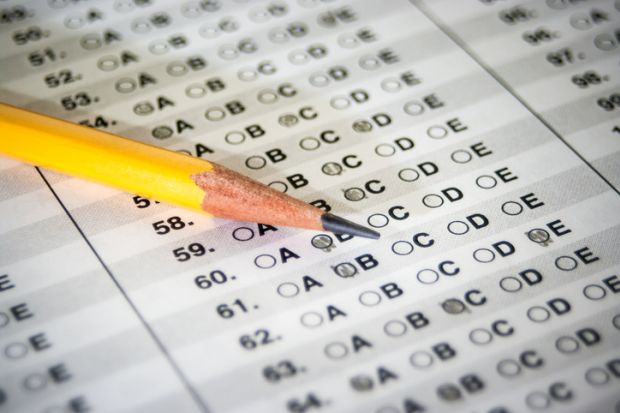With all the predictability of a butterfly in a hurricane, the University of California system has changed its stance on the use of standardised entry tests five times in 13 months.
Thoughtful deliberations these were not. It was more a case of settling lawsuits, appeasing activists, and weathering a pandemic.
In January 2020, UC faculty delivered a university-commissioned report finding that the case for making the ACT and SAT optional remained unconvincing; without more research, it “could conceivably result in greater inequities and worse student outcomes”.
But then, in April, the schools went test-optional anyway because the pandemic made it difficult for students to access standardised tests. The following month, the system’s board of governors voted to become permanently test-optional and to replace the SAT and ACT with a test of their own in 2025.
However, in September the system was sued by an advocacy group for disabled students on the grounds that the lack of testing centres for disabled students meant no one should be allowed to submit scores. The UC system appealed and was granted a temporary stay later that month but, in May, it reached a settlement and capitulated to a full, immediate test-blind policy.
It is apparent from the university’s initial intention to create an alternative standardised test that it does not oppose admissions tests per se, just the SAT and ACT. But it has now given up on that more challenging mission and slouched into the moral safe space of test abolition – egged on by FairTest, a non-profit group that bills itself as “work[ing] to end the misuses and flaws of standardized testing” but equally eschews the difficult work of easing those flaws.
So, now, admissions officers will have to rely entirely on inconsistent, non-regulated, non-standardised metrics to evaluate students: personal statements, recommendation letters, extracurricular activities, Advanced Placement and International Baccalaureate participation, teacher recommendations and, above all, high school GPAs.
The idea that using GPAs will be an improvement on standardised testing requires a childishly quaint view of the US education system. It rests on the supposition that GPAs are somehow immune to the same biases that disparity advocates are trying to root out of standardised tests.
Dispense with all notions that GPAs are consistent, standardised, or comparable. GPAs are not standardised for the simple reason that an “A” in one school is not the same as an “A” in another. In fact, the state with the top high school GPA in 2017 (South Carolina) had one of the lowest high school graduation rates in 2018/19.
Even more concerning, GPAs are not even temporally standard against a school’s own population. Grade inflation is so rampant in the US that one in four of Boston’s recent high school valedictorians failed to graduate from college in six years.
Moreover, what type of student is most likely to have a strong GPA? Which high school districts are likely to offer the most AP and IB coursework? No one can deny that standardised test scores correlate with income, too, but they are not capped by it. Low-income students attending schools that offer no AP courses and who cannot afford to go on volunteer trips abroad during the summer can still score a perfect 1600 on the SAT. And they can do this without expensive test-prep programmes.
By contrast, they cannot opt for parents who understand and encourage them to make strong relationships with their teachers so that they receive strong recommendation letters. Nor can they cannot afford independent college counsellors who will help craft their personal statements. So the UC’s refusal to consider SAT and ACT scores has excised the one element of college applications in which success is attainable regardless of background.
In time, this will become apparent, and the UC will reintroduce some form of standardised testing. Until then, look for increased emphasis on AP and IB curriculum and scores. Watch for an emergence of test-based demonstrations of intelligence – think Mensa membership.
The latest raft of testing-optional policies adopted around the US may have resulted in all-time high application rates but they will not increase diversity any more than the previous raft in the 2010s did.
The UC will tout its democratisation of education. FairTest will claim victory. But equity will remain as far away as ever. And standards in US higher education, which ranks 30th the world in mathematics and 19th in science, will continue to flounder.
Matt Larriva is founder of Powerful Prep, which offers ACT and SAT preparation.
Register to continue
Why register?
- Registration is free and only takes a moment
- Once registered, you can read 3 articles a month
- Sign up for our newsletter
Subscribe
Or subscribe for unlimited access to:
- Unlimited access to news, views, insights & reviews
- Digital editions
- Digital access to THE’s university and college rankings analysis
Already registered or a current subscriber? Login








